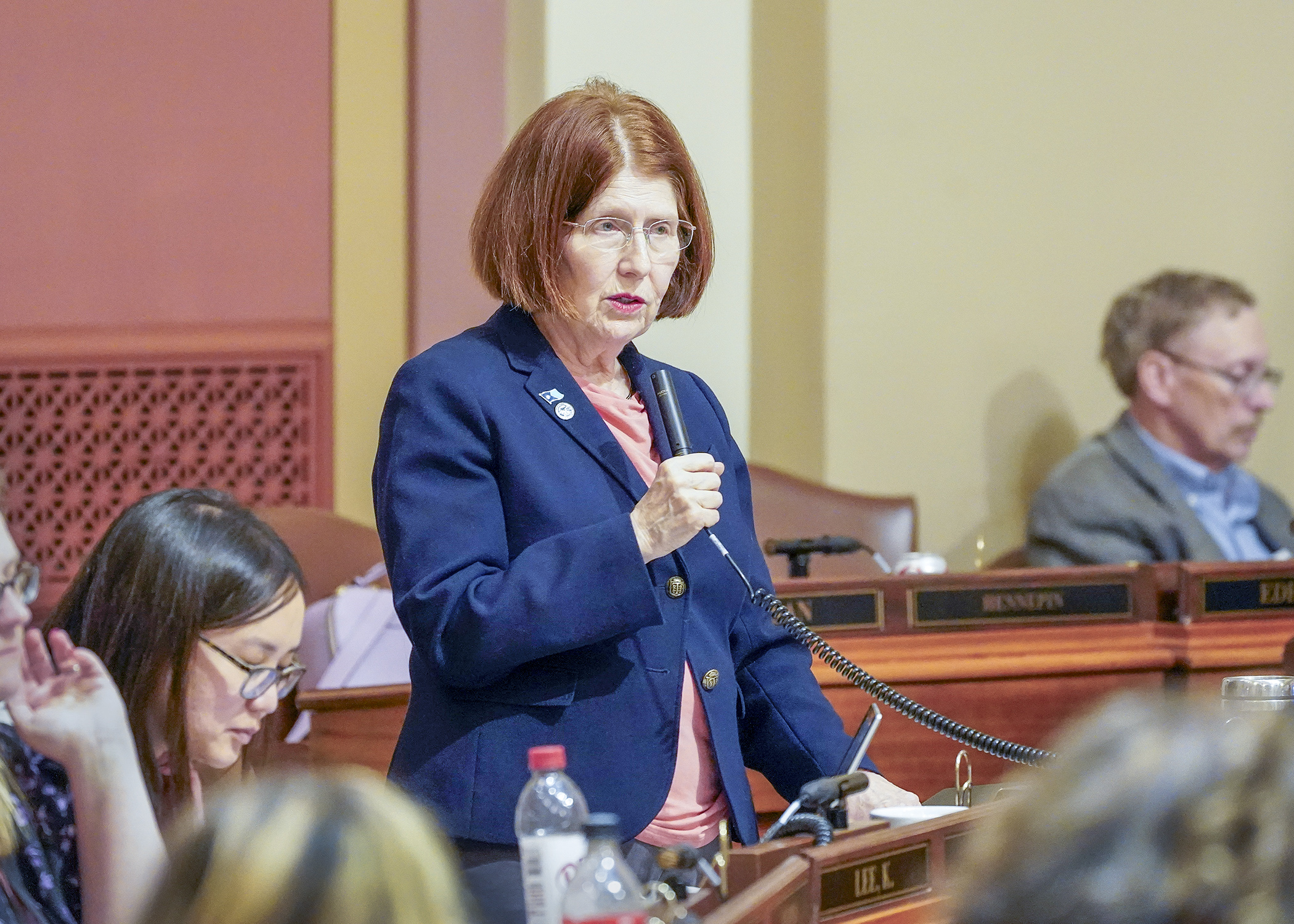Health budget bill passes off House Floor

Addressing a wide range of provisions from prior authorizations to mental health matters; from abortion and gender-affirming care to amino acid-based elemental formula and whole genome sequencing are goals of the health and human services supplemental budget bill.
Passed 68-59, as amended, by the House Thursday, HF4571/SF4699* now heads back to the Senate where it was passed 34-31 May 3. A conference committee is expected to work out the differences.
“My theme for this bill? Tiny target, bit impact,” said Rep. Tina Liebling (DFL-Rochester), who sponsors the bill with Sen. Melissa Wiklund (DFL-Bloomington).
The supplemental budget target agreement called for $9.5 million in spending, but the bill would appropriate $43 million due to reappropriations and underutilized budget sources.
Among its provisions the bill would require health insurance companies to cover gender-affirming care, abortions, orthotic and prosthetic devices and wigs after cancer treatment. It would also prohibit health care providers from denying medically necessary services to patients because of outstanding medical debt owed the provider.
One of the bigger topics of discussion on the House Floor was prior authorizations whereby health insurers require doctors and other health care providers to get approval for services before providing care.
An amendment from Rep. Joe Schomacker (R-Luverne), which was unsuccessful, would have required Minnesota Management and Budget and Department of Human Services budgets to bear excess costs for making it easier to obtain prior authorizations, as the bill would do.
A fiscal analysis indicates the state could not quantify the provisions, but costs would indeed exist, said Rep. Anne Neu Brindley (R-North Branch). “This is going to be a huge problem and frankly it’s an irresponsible way to govern.”
Rep. Kristin Bahner (DFL-Maple Grove) sees the matter differently. The bill, she said, would not eliminate prior authorization mechanisms, but rather put barriers in place if the prior authorization is delaying care for no discernable reasons.
“If we are asking providers to spend on average 13 hours a week filing prior authorizations, that is time clinicians are not in the room with a patient,” Bahner added. “We’re not saying you can’t do prior authorizations for chronic conditions. What we are saying is if a patient gets approved through prior authorization who has a chronic condition, they don’t have to jump through the same hoop year after year after year after year.”
Rep. Danny Nadeau (R-Rogers) offered an amendment that was adopted to require the Department of Human Services to post on its website the number of prior authorization requests it did not approve for its health insurance products, and the reason for the denial, as is currently required of private sector providers.
Numerous other amendments were offered by Republicans and Democrats alike.
Those adopted would:
- require that one government-appointed member on the proposed Emergency Medical Services Advisory Council reside outside the metropolitan area counties;
- allow qualified individuals who facilitate residential group treatment to do so by telehealth for up to three days in the event of their own illness;
- allow health maintenance organizations operated by nonprofit corporations or local government units certified by June 1, 2024, to continue operations for as long as the certificate allows;
- modify governance of the Hennepin Healthcare System by the Hennepin County Board of Commissioners; and
- require Hennepin County to notify the health commissioner whenever an investigation of the Hennepin Healthcare System is launched; and
- expand current law that allows any pregnant patient to have a designated support person with them while receiving health care to any patient.
“Every patient should be able to have a loved one by their side to navigate health care decisions in joyful moments, in trauma, in tragedy, and the list can go on,” said Rep. Natalie Zeleznikar (R-Fredenberg Township).
Unsuccessfully offered amendments would have:
- changed “must” to “may” in statute that allows the health commissioner to fine hospitals $20,000 for curtailing operations, relocating services, or ceasing certain services without public notification;
- eliminated a proposed $100,000 annual registration fee for insulin manufacturers; and
- allowed safety devices at fire stations so a parent could anonymously surrender a newborn infant.
Related Articles
Search Session Daily
Advanced Search OptionsPriority Dailies
Ways and Means Committee OKs House budget resolution
By Mike Cook Total net General Fund expenditures in the 2026-27 biennium will not exceed a hair less than $66.62 billion.
That is the budget resolution approved Tuesday by the House Ways...
Total net General Fund expenditures in the 2026-27 biennium will not exceed a hair less than $66.62 billion.
That is the budget resolution approved Tuesday by the House Ways...
Minnesota's budget outlook worsens in both near, long term
By Rob Hubbard It looks as if those calling for less state spending could get their wish, judging from Thursday’s release of the February 2025 Budget and Economic Forecast.
A state su...
It looks as if those calling for less state spending could get their wish, judging from Thursday’s release of the February 2025 Budget and Economic Forecast.
A state su...